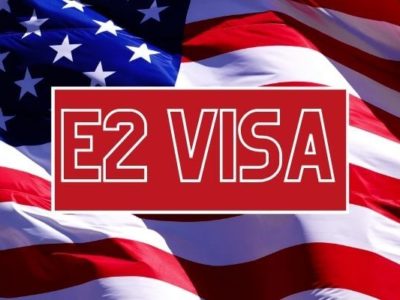People who wish to own, operate and run a legal business in the United States of America are issued an investment-based nonimmigrant visa for entrepreneurs.
According to regulation, it is referred to as the ‘Treaty Investor Visa”. It just merely implies that there must be a treaty between the entrepreneur’s native country and the United States.
This treaty allows the investor to send an application for the E-2 visa.
Important Tip: Although the E-2 visa is treaty-based, it must be acknowledged that several nations do not have E-2 arrangements with the United States and whose citizens are thus not qualified for this visa. The biggest of these disqualified nations are China, India, Brazil, and Russia.
The E-2 visa helps founders and executives bring vital workers from their home country to help their company. Besides, the permit does not have stringent work requirements, unlike the EB-5 program.
Nevertheless, a foreign national must show that a company can produce considerably more revenue than it needs to make a living for a foreign national, generating jobs and positively affecting the US economy.
The E-2 visa requires partners and unmarried children under 21 to enter the United States with the primary claimant. They are required to work and stay in school without impediment.
It is necessary to bear in mind that the E-2 would not necessarily lead to permanent resident status. Rather, the visa can be extended indefinitely since there is no time limit.
Although some investors may see this as a disadvantage, many owners do not have the immediate goal of permanent resident status.
Even so, there are already permanent citizenship opportunities for investors who plan to file for a green card at a subsequent time while still on an E-2 visa.
E2 VISA Eligibility
The first and most important criterion for eligibility is the nationality of the entrepreneur. The only entrepreneur allowed to register for an E-2 visa are people from the following countries: Germany,
Bosnia and Herzegovina, Brunei, Bulgaria, Czech Republic, Congo, Canada, Chile, China, Egypt, Ethiopia, Costa Rica, Cameroon, Croatia, Denmark, Ecuador, Colombia, Estonia, Finland, France, and Georgia. Although the list does not end here, these are some major countries.
The investor must meet several or more criteria once treaty eligibility is established. A brief analysis of these criteria is below:
How much money needs to be invested?
The Regulations don’t define the specific level of investment needed for an E-2 visa. There are, however, several hints to help decide the “safe” sum. The first hint is that the investment must be significant.
To determine whether an investment is substantial, the consular officer may conduct a “proportionality test.” The test estimates the following two figures: the investment volume vs. the cost of purchasing or developing an established business.
Essential Requirement for E-2 Visa Application
A minimum requirement of the E-2 visa is that an investor would have t invest in a legitimate business. The failure to meet this requirement means that the investor’s petition would not suffice.
The immigration authorities describe a simple undertaking as “a real, active commercial or entrepreneurial undertaking producing services or goods for profit.”
Some of the documentation that you can provide to show that your business is valid includes:
- Financial statements
- Business licenses
- Lease agreements
- Escrow documents
- Tax returns
- Notice of assignment of an Employer Identification Number from the IRS (Internal Revenue Service).
- Contract or customer agreements
- Business organizational chart
- Quarterly wage reports or payroll documents
- Utility bills, bank statements, and advertisement
- Telephone directory listing
A few primary investor visa criteria for E-2 will help you plan your application and guarantee that you are an eligible applicant. After submitting your application, you can review your status.
Application Process
Due to the E-2 visa application approval is dependent on the development of a business, the whole procedure needs advanced planning, market research, and complex calculations.
And as such, the concerned party is advised to consult with a legal advisor and counsel as early as possible during the application window.

